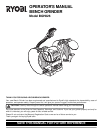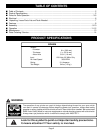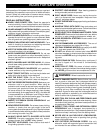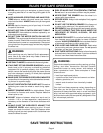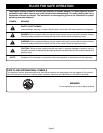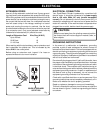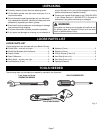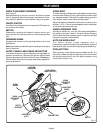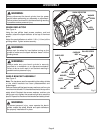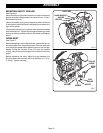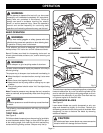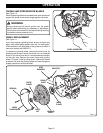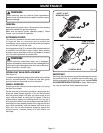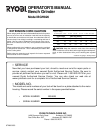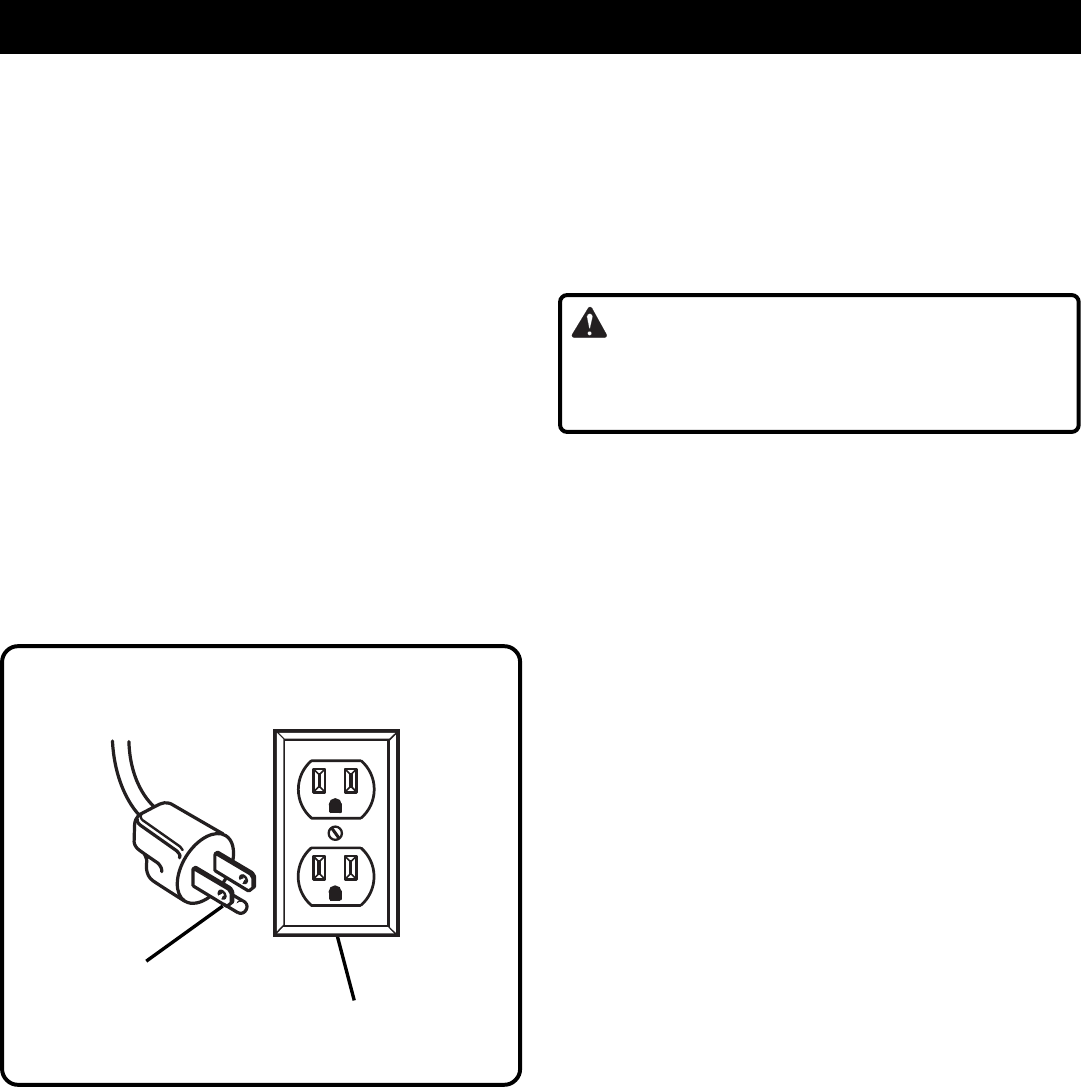
Page 6
CAUTION:
Keep the cord away from the grinding area and position
the cord so that it will not be caught on material, tools, or
other objects.
GROUNDING INSTRUCTIONS
In the event of a malfunction or breakdown, grounding
provides a path of least resistance for electric current to
reduce the risk of electric shock. This tool is equipped with an
electric cord having an equipment-grounding conductor and
a grounding plug. The plug must be plugged into a matching
outlet that is properly installed and grounded in accordance
with all local codes and ordinances.
Do not modify the plug provided. If it will not fit the outlet, have
the proper outlet installed by a qualified electrician. Improper
connection of the equipment-grounding conductor can result
in electrical shock. The conductor with insulation having an
outer surface that is green with or without yellow stripes is the
equipment-grounding conductor. If repair or replacement of
the electric cord or plug is necessary, do not connect the
equipment-grounding conductor to a live terminal.
Check with a qualified electrician or service personnel if the
grounding instructions are not completely understood, or if in
doubt as to whether the tool is properly grounded.
Repair or replace a damaged or worn cord immediately.
This tool is intended for use on a circuit that has an outlet like
the one shown in
figure 1.
It also has a grounding pin like the
one shown.
ELECTRICAL CONNECTION
Your Ryobi Bench Grinder is powered by a precision built
electric motor. It should be connected to a power supply
that is 120 volts, 60Hz, AC only (normal household
current). Do not operate this tool on direct current (DC). A
substantial voltage drop will cause a loss of power and the
motor will overheat. If the machine does not operate when
plugged into an outlet, double check the power supply.
Fig. 1
GROUNDING
PIN
COVER OF GROUNDED
OUTLET BOX
EXTENSION CORDS
Use only 3-wire extension cords that have 3-prong ground-
ing plugs and 3-pole receptacles that accept the tool's plug.
When using a power tool at a considerable distance from the
power source, use an extension cord heavy enough to carry
the current that the tool will draw. An undersized extension
cord will cause a drop in line voltage, resulting in a loss of
power and causing the motor to overheat. Use the chart
provided below to determine the minimum wire size required
in an extension cord. Only round jacketed cords listed by
Underwriter's Laboratories (UL) should be used.
Length of Extension Cord Wire Size (A.W.G.)
Up to 25 feet 16
26-50 feet 16
51-100 feet 16
When working with the tool outdoors, use an extension cord
that is designed for outside use. This is indicated by the
letters WA on the cord's jacket.
Before using an extension cord, inspect it for loose or
exposed wires and cut or worn insulation.
ELECTRICAL



